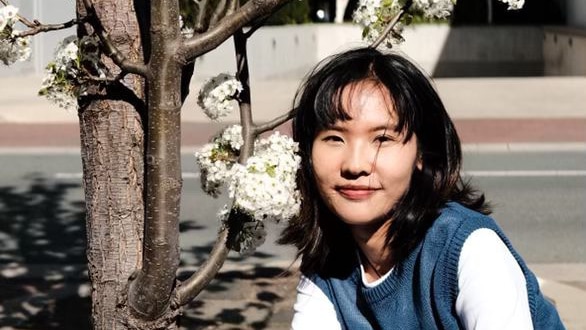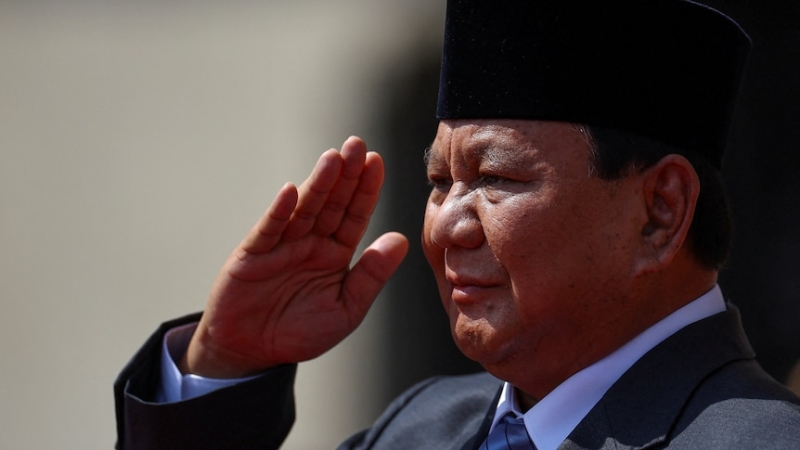Yimin Qiang and other Asian women share why they did, or didn't take their partner's surname after marriage. (Supplied)
In some cultures, your surname is viewed as your family's history and legacy.
Not changing hers meant honouring this, says Canberra woman Yimin Qiang.
"I won't change my last name after I get married," the 27-year-old told the ABC.
"My reasons are simple: I was born and raised in China and identify entirely as Chinese, even though I'm living in Australia now."
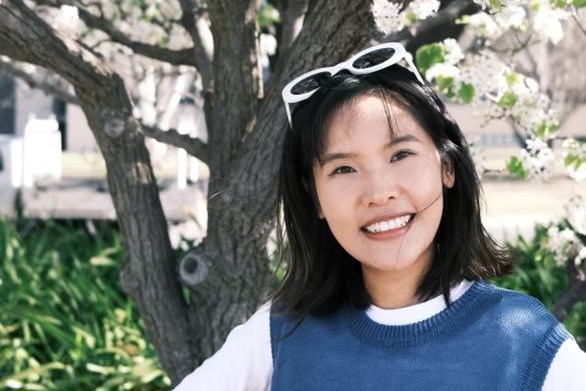
Ms Qiang is planning on getting married next year but won't be taking her fiance's surname. (Supplied)
Ms Qiang and her Anglo-Australian fiance are planning to get married next year.
She believes her name represents where she's from and her cultural background.
"I think my parents would feel very angry if I changed my last name," she said.
Pan Wang, an associate professor in Chinese and Asian studies at the University of New South Wales, said it was common for women to take their husband's surname during certain periods in ancient China.
But it's no longer common due to a number of reasons, including the introduction of China's first marriage law in 1950, she said.
"In order to promote gender equality, the Chinese government introduced this law, giving men and women the same right to use their surnames after marriage," Dr Wang said.
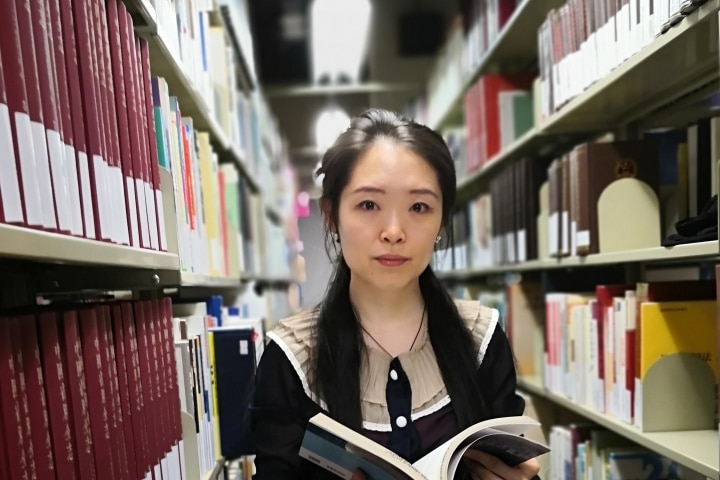
Professor Wang says most surnames in China are inherited from the father's side. (University of New South Wales)
But in the background, Dr Wang pointed out that patriarchal values still influenced people's last name choices.
"Most surnames are inherited from the father's side," she said.
Dr Wang said this was why some Chinese women would add their husband's last name to their name, but still keep their own last name.
She said women were also more likely to take their husband's surname in some parts of China and Taiwan.
"It is more common in China's Special Administrative Regions of Hong Kong and Macau," she said.
"It [results from] a mixture of Chinese history and influence of the Western family system."
Changing name would 'invalidate' career for some
Women not taking their husbands' surnames after marriage is also common in Vietnamese culture, said 32-year-old Mai Lam from Melbourne.
But Ms Lam had other reasons too — her 10-year career in banking.
"I made an entire career and have earned multiple degrees with my name," she said.
"Changing it would make me feel like all my hard work has been invalidated and doesn't belong to me."
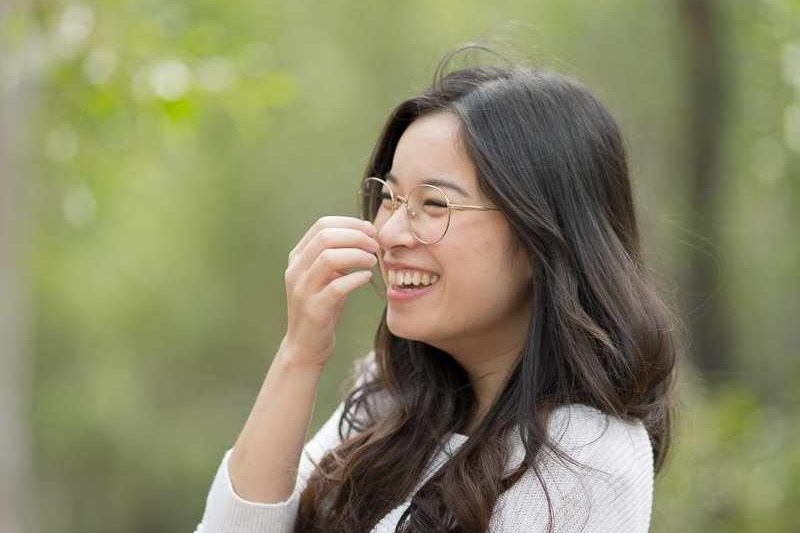
Ms Lam says she is proud to have earned multiple degrees with her name. (Supplied)
Indonesian woman Andrea Hartoyo, who lives in Calgary in Canada, married her husband a few months ago and decided to keep her name for similar reasons.
"I've gotten two degrees with my name, so I count it as an accomplishment," the 34-year-old marketing and communications manager said.
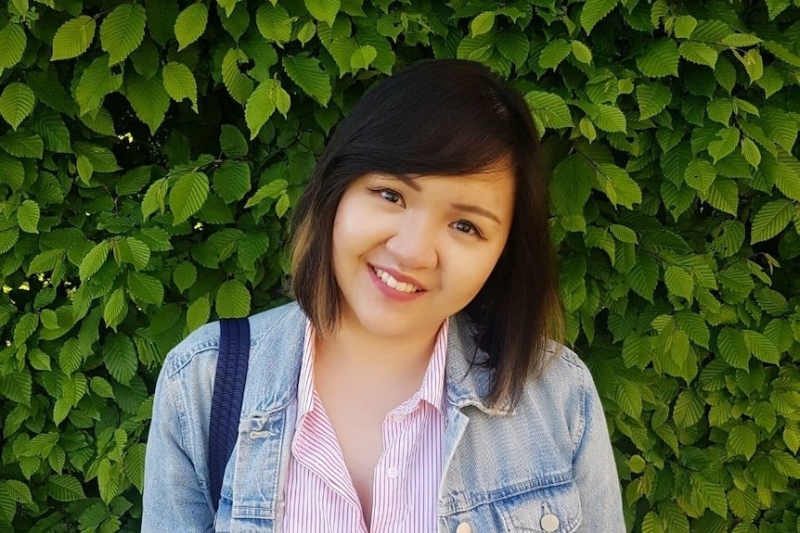
Ms Hartoyo says her surname is special to her because of its uniqueness. (Supplied)
While many Indonesians don't have a surname, and it's not legally required, Ms Hartoyo said hers was "unique".
"Especially where I live in Canada, you won't find many with my surname," she said.
Ms Hartoyo said down the track she and her husband would be adding each other's surnames to their own, and hyphenating them.
"So when we have kids, they'll have both our names," she said.
'We have our own identities'
Nidhi Doshi's husband initially also suggested they both hyphenate their names.
But the 32-year-old Indian, who lives in Denver in the US state of Colorado, said it "didn't feel right".
"I just think we are both our own person and have our own identities."
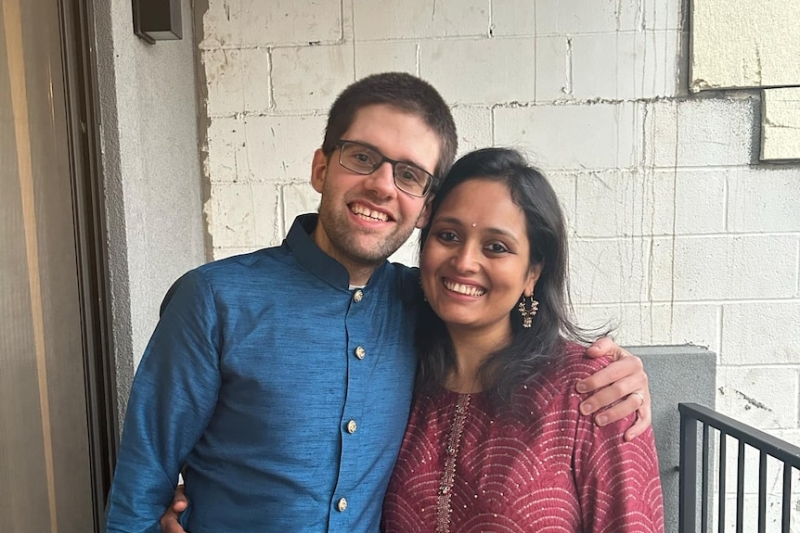
Ms Dosha says her and her husband are still deciding what surname to give their future kids. (Supplied)
In India, naming conventions vary based on a person's religion and where they were born.
It is common for a person's surname to reflect their community, family, caste or home village.
If parents believe their surname is of a higher status due to its relation to a specific community or caste, they may expect their kids to "honour" the name by not changing it.
South Asian women explain the complications of interracial relationships
Photo shows A woman hugging a man from behind
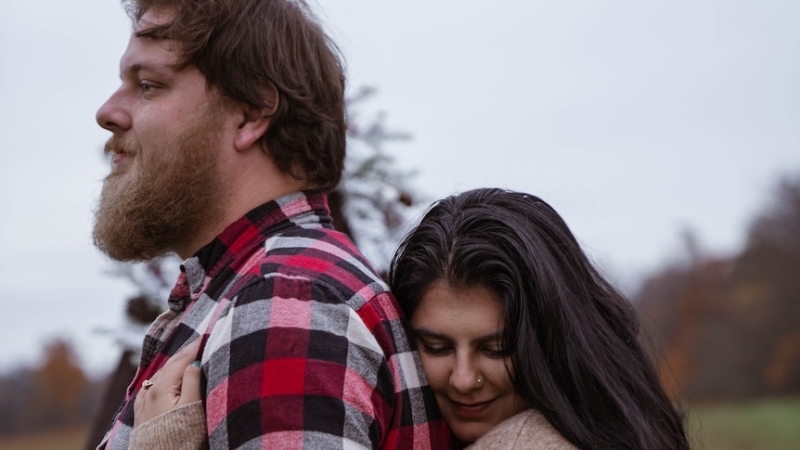
Ms Doshi said her parents felt "happy and proud" that she decided to keep her surname.
But Ms Doshi and her husband still haven't decided what to do when they have children.
She said she would like to give their kids "an Indian first name", with her husband's Anglo surname.
"And my surname could be their middle name," she said.
"This way, even if they just use their first and last names, both their Indian and American heritages are honoured."
For some, it's about cutting ties
But for some, giving up their family name was an easy choice.
Stefy, an Indian woman who lives in New York, met her Jamaican-Chinese partner in 2015 at university.
Before they married in 2023, Stefy said she felt no connection to her family name, Thomas.
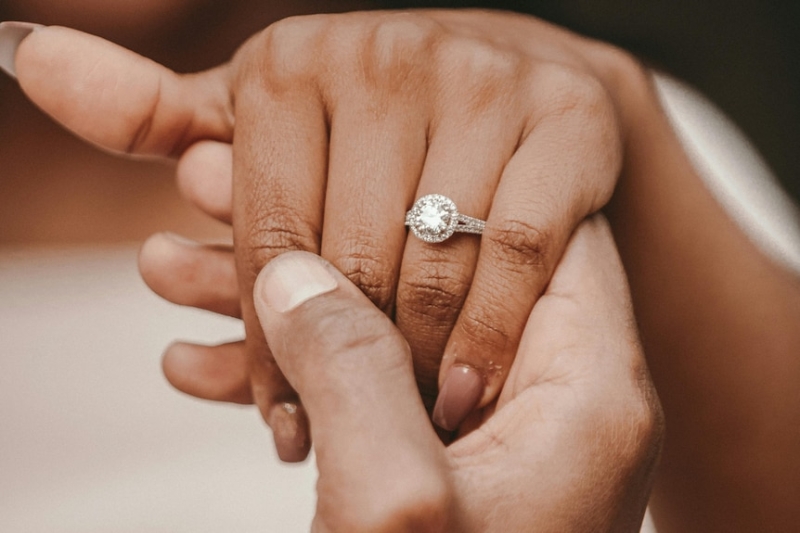
Since her engagement, Stefy says her parents "have not been happy" with her decision. (Unsplash: Alekon Pictures)
"It felt devoid of culture," she said.
A common surname among Christian families in the South Indian state of Kerala, India, "Thomas" didn't have any "cultural or religious meaning" to Stefy.
Her rocky relationship with her parents also influenced her decision to change her name.
"At the time, I didn't want that to tie me to them. It seemed like an easy choice to make," she said.
"My husband supported whatever decision I made, but he was very happy to have me take his last name. He made sure I wasn't hurt by it."
When Cameron took wife's surname it was 'not a big deal' and yet the practice remains an oddity
Photo shows A family seated on a couch take a 'selfie'
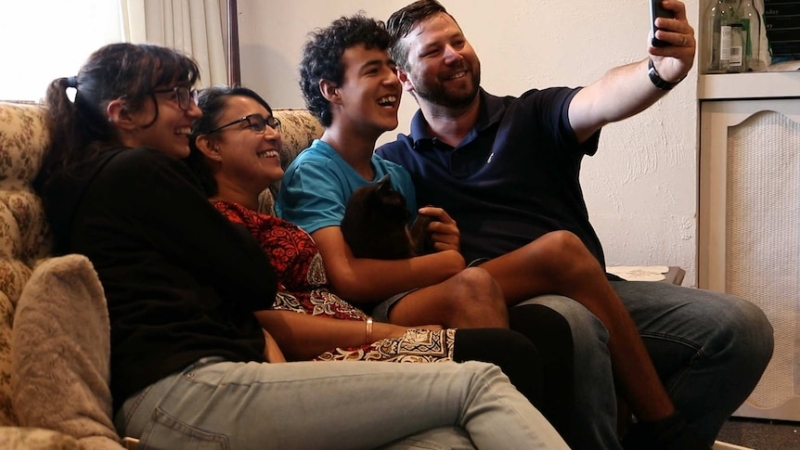
Since her engagement, Stefy said her parents "have not been happy" with her decision.
"They made a lot of racist remarks about my partner being mixed race. They would tell me to take my time and 'continue looking,'"
Stefy said many Indian women were expected to take their husband's surname, pointing out the irony of her parents telling her to do the opposite.
"My mum told me that in 'the modern era', you don't need to change your name," she said.
But she believes her mother told her this because she disapproved of her husband being half Jamaican and half Chinese.
No 'wrong or right decision'
Ms Qiang said her fiance's family respected her choice to not take their surname.
"His mother asked me twice. When I said 'no', she was a bit surprised," she said.
"But she respected my reasoning after I explained. My fiance is also very supportive of my choice."
Ms Qiang added that she thought whether one should change their last name should be a personal choice.
"I believe that when a child is born, the name belongs entirely to them. There is not a wrong or right decision when it comes to this."

